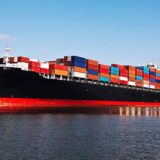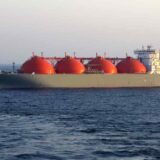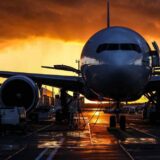What’s on your mind?
Frequently Asked Questions
Delux Infinity Express answers some of the questions frequently asked by our customers worldwide.
ALL THE QUESTIONS
Most frequent questions
BROCHURES
CONTACT
- What kind of services does Turbo Stream Logistics offers?
- Does Turbo Stream Logistics offer warehousing and distribution facility?
- What level of customer service should I expect?
- Can Delux Delivery manage every aspect of my logistics?
- What is Madison Shipping? How does it work?
- What regulation governs road transport?
- What are the risks of maritime freight transport?
- How do we commit to you?
- What kind of maritime transport vessels exists?
- What are the characteristics of bulk carriers?
- What kind of bulk carriers are there?
- What’s the difference between air freight and a courier service?
- How do you calculate the cost of air charter?
- What documents are required for air freight?
- What is a free warehouse?
- How does a customs warehouse function?
- How many kinds of customs control are there?
- How do customs controls function?
- What is the purpose of international customs?
- What is customs management?
- What is customs clearance?
- What is completed customs clearance?
- How are dangerous or IMO goods classified?
- What does IMO mean when referring to dangerous goods?
- Who regulates dangerous substances?
- What is freight consolidation?
Delux Infinity Express offers a full range of logistics solutions, including trucking, air cargo and transport, ocean cargo and freights and warehouse solutions. Our transport services include dry van and temperature controlled, intermodal, over dimensional, air cargo and charters, power only and recovery, specialized, transportation, dedicated third-party resource, supply chain, cross docking, warehousing, and distribution.
Definitely! Delux Infinity Express offers warehousing services. Access to adequate, safe, convenient warehouse space is crucial to the everyday operation of many businesses. We also offer warehousing and cross-docking service with access to various dock heights to meet our customers’ needs.
Delux Infinity Express starts with a foundation built on an unparalleled customer service model that other providers are, quite frankly, hard-pressed to match. This means that when someone contacts Delux Infinity Express, they’re always going to speak to a live professional within two minutes, tops. Each team member is equipped to have a quote ready in 15 minutes, with a follow up in another 15. That’s the 24/7/365 customer service promise that defines Turbo Stream Logistics.
Delux Infinity Express strives to be seen as the most exceptional and reliable logistics specialist that can expertly move any cargo from origination to its final destination without incident. We use state-of-the-art tracking technology to ensure that you have visibility into your shipment at every stage of its journey. With highly flexible processes and a team-based approach to communication, Delux Infinity Express is fully equipped and ready with a proposed solution.
For Growers
Indigo Transport offers a hassle-free grain delivery service for growers enrolled in Madison shipping Marketplace. Growers can choose to have Delux Infinity Express pick up and deliver their grain for all Marketplace bids. Simply select bids with the Indigo Transport icon and let Indigo handle the logistics. The Marketplace bid price includes the cost of freight, so the price you see is the price you get.
For Carriers
Delux Infinity Express is a new platform for carriers to quickly and easily find and confirm loads. Delux Infinity Express sources exclusive loads from Delux Infinity Express, an online grain transaction platform connecting thousands of growers and grain buyers across the country. Those loads, along with others sourced from Turbo Stream Logistic’s third-party partners, are uploaded to our digital platform, and accessible on your smartphone.
For Shippers
Delux Infinity Express is a full-service logistics provider for shippers looking to quickly and easily source delivery of dry bulk commodity freight. Delux Infinity Express has built a network of thousands of local, reliable carriers vetted for safety, federal compliance, and proper insurance coverage. Each carrier has access to a mobile app that enables them to quickly and easily find, and book loads based on their preferences. When you tender a load to Delux Infinity Express, you’ll be matched to a pre-approved carrier who will have all the details needed for a successful pick-up and delivery. Carrier cancellation or other issues arise? We’ll assign you a dedicated Indigo representative to resolve any issues that may come up.
Road freight transport is governed by the Law on Land Transport (Ley de Ordenación de Transportes Terrestres, LOTT), and by the Regulation on Land Transport (Reglamento de Ordenación de los Transportes Terrestres, ROTT), which develops the subject in greater depth. These documents provide regulations for transport companies and for companies related to their activity, meaning that it is important to know them. In this link you will find the complete set of regulations affecting this kind of activity, including special road transport.
- Delayed shipment: The most common causes of delay are inefficient management of port times and formalities. Other variables may also affect the shipment, such as circumstances of force majeure, like a storm for instance, or, in some parts of the world, the risk of a pirate attack.
- Lost goods: While this represents a very low risk today, it can occur in the event of problems such as the boat sinking or breaking down, as well as due to robbery or theft in ports of loading and destination in countries with high levels of corruption.
- Moisture, humidity or extreme temperatures: Environmental conditions must be perfectly controlled to prevent the cargo from being rendered unusable due to moisture, humidity or extreme heat or cold. All cargo must therefore be transported in containers suited to their particular characteristics and checked to ensure that they are properly closed. They must also be correctly loaded, unloaded and stored.
- Contamination: Interaction between different goods can ruin them. The goods must therefore be well packaged and properly stowed in the hold to prevent their contamination.
- Natural disasters: Natural disasters are becoming more frequent and serious in recent years; this represents the most unpredictable risk on the list.
- Computer threats: This is one of the new risks of international maritime transport since the famous NotPeya attack suffered by Maersk. Companies and ports are therefore currently working on logistics cybersecurity.
Lorem ipsum dolor sit amet, consectetur adipiscing elit. Nullam euismod, ex suscipit facilisis tincidunt, mauris dolor semper eros, aliquam gravida sapien felis a odio. Integer condimentum libero vel lacus interdum, sit amet hendrerit augue sagittis.
We can distinguish between different kinds of ships for maritime transport, depending on the load they transport:
-
- General freighters: These are basic cargo ships; they can carry freight, but have no space for containers.
- Container ships: Ships specially designed to carry goods in containers. They monopolize the majority of international dry freight transport and represent more than a half of all maritime trade.
- Bulk carriers: The vessels best suited to transporting solid bulk cargoes.
- Oil/gas tankers: Special tankers for transporting crude oil and by-products differentiated by their superior technical characteristics; all of them guarantee water tightness and structural resistance. Gas tankers have more sophisticated technology for storing liquefied gas and are divided into carriers of GNL and GLP, given that each one needs to be kept at a different pressure and temperature.
- Reefer ships: Transport perishable food and commodities which must generally be preserved at very low temperatures
- Ro-Ro ships: Have ramps and platforms for transporting vehicles with wheels, from private cars to industrial vehicles and loaded trucks. There are also hybrid versions of these ships which combine vehicle and passengers transport (ferries) and others that transport vehicles carrying containers (Ro-Lo)
- Up to 200,000 DWT.
- Single deck.
- Double bottom.
- Wing tanks.
- Double or single skin.
- With or without self unlounders.
- Spacious watertight holds fitted with hatches.
- Grab cranes for loading and unloading.
The different bulk carriers can be classified according to their size:
- Handies: These include the HandySize and the HandyMax, and are the most common kinds. They have a DWT of between 10,000 and 50,000 and their relatively small size means that they can enter any port.
-
-
- Panamax: Have a DWT of between 50,000 and 80,000 with a maximum beam length of 32.2m. These are bigger ships, just the right size for making their way through the Panama Canal, hence their name.
- CapeSize: These are bulk carriers with a DWT of more than 80,000 and are the ones which circulate in the lowest numbers. They are too big to sail through the Panama or Suez Canals and must therefore travel round the Capes of Good Hope and Horn.
-
They are two different ways of transporting freight by air:
- When using a courier service your goods won’t be considered as freight, but as a postal package. This is an ideal option for small, lightweight parcels requiring urgent transport. However, courier companies don’t provide an integral logistics service covering aspects like customs clearance, meaning that you may find yourself faced with delays or surcharges.
-
-
- On the other hand, air freight sent by means of a logistics or forwarding company will guarantee greater security for your operation since its professional team will take care of all necessary details.
-
An air charter service is calculated based on the volume of the goods transported. However, it is strongly influenced by the availability of physical means (transport) on your desired route. By way of an example, bringing goods from China is much cheaper than it is to take them there. This is because shipowners are in high demand for bringing cargo from China to Europe, while it is more complicated to find freight to transport back out to China given the existing trade imbalance. Another variable with a strong influence is the oil price at the moment of travelling.
- Air Waybill (AWB): This is the document of title to the goods travelling by air and is therefore non-negotiable. It travels with the cargo and acts as evidence of delivery of the goods travelling on board the plane.
- Commercial invoice: Document establishing the conditions of sale for the goods and their specifications. Serves as proof of sale.
- Packing list: A list of the contents in a package, completing the information of the invoice, which must be issued by the sender.
- Customs clearance authorization: Document with which an importer or exporter authorizes a customs agent to submit one or several customs declarations on their behalf.
A free warehouse is a place providing storage space for goods, as well as other services related to their handling, maintenance and safety. It is intended for all kinds of imports and exports and offers tax benefits. Cargoes deposited here are not liable for import duties or tax and, for the purposes of customs regulations, are not considered to exist on Community territory.
A customs warehouse (CW) is a warehouse that offers certain tax benefits for goods. It is a place where goods coming from outside the EU can be stored indefinitely, without having to pay tax. The customs warehouse therefore means that the VAT due on imports can be deferred, as well as any corresponding duty, until the goods leave the warehouse again.
The main kinds of customs control according to the route and jurisdiction are as follows:
-
-
- Land customs: Are found at the borders between countries, where they deal with heavy goods transport, private cars and even people who cross on foot in the case of city border points. Their functions are to check that the documentation matches the articles transported.
- Air customs: Are located at international airports and deal with the highest flow of human transit. Imported and exported goods arriving at an airport are checked by customs on arrival, and subsequently by customs at the place of their destination
- Maritime customs: This kind of customs deals with the vast amount of goods travelling between countries geographically very distant from one another. Here the goods are generally of great weight or size, such as vehicles or industrial machinery. Maritime customs are responsible for verifying the goods entering and leaving, as well as their documentation.
-
On the other hand, depending on their function, customs controls can be classified as:
- Customs at the port of entry: Which deal with goods to be declared for national consumption.
-
-
-
-
-
- Customs at the point of destination: Receive goods or products sent. At this point the goods are no longer considered as being in transit and become liable for tax.
- Border customs: These are customs which neither receive nor issue goods, but which control goods in transit, often when travelling from their country of origin to that of their destination.
-
-
-
-
Customs control the movement of goods between different states in three steps:
-
-
- Customs declaration: Must be presented to the customs authority in order to identify the goods to be transported and their destination.
- Goods inspection by the customs agents, to check that they match the declaration.
- Verification that trades policy norms have been met and amounts due have been paid (import and export duties).
-
The role of customs control is to regulate and inspect shipments in order to guarantee that commercial exchanges between different countries proceed legally, that they comply with all tax and duty obligations and with all other requirements related to their entry or exit.
As well as guaranteeing compliance with international trade rules, collecting taxes and duties due where appropriate, customs controls are a fundamental mechanism for preventing money laundering, tax fraud and drug trafficking.
The management of all formalities required by the customs authorities. It is important for these formalities to run smoothly and trouble-free in order to prevent delays due to bureaucratic issues. These formalities are therefore usually entrusted to a customs agent who will carry them out on behalf of the freight owner.
All formalities and requirements to be completed for goods entering and leaving a specific national territory in order to control and approve their transportation. The customs agent is responsible for completing these formalities on behalf of the importer or exporter, and for submitting a declaration of information to the competent customs authority in each case.
Customs clearance means that the customs procedure has been completed, i.e. that all of the paperwork has been submitted and that the shipment can continue on its way.
Dangerous goods are classified according to the ADR (European Agreement concerning the International Carriage of Dangerous Goods by Road), as follows:
-
-
- Class 1: Explosive substances and articles
- Class 2: Gases
- Class 3: Flammable liquids
- Class 4.1: Flammable solids
- Class 4.2: Substances liable to spontaneous combustion
- Class 4.3: Substances which, in contact with water, emit flammable gases
- Class 5.1: Oxidizing substances
- Class 5.2: Organic peroxides
- Class 6.1: Toxic substances
- Class 6.2: Infectious substances
- Class 7: Radioactive materials
- Class 8: Corrosive substances
- Class 9: Miscellaneous dangerous substances and articles
-
IMO is the name given to dangerous goods in maritime transport. It takes its name from the International Maritime Organization, the body responsible for classifying these kinds of hazardous freight.
There are different regulations on dangerous substances.
The road transport regulation is the ADR (European Agreement concerning the International Carriage of Dangerous Goods by Road), an agreement including 32 EU countries.
The carriage of dangerous goods by rail is governed by the RID.
For the ocean carriage of dangerous goods, the IMDG (International Maritime Dangerous Goods) code applies. Here such cargoes are also known as IMO goods due to the fact that the International Maritime Organisation is the authority in the matter.
Finally, the ICAO provides the regulation for the air transport of dangerous goods.
This is a practice whereby the cargoes of one or several shippers are bundled together for transport under a single transport document. It is also known as groupage when different cargoes are combined to fill a single container.







